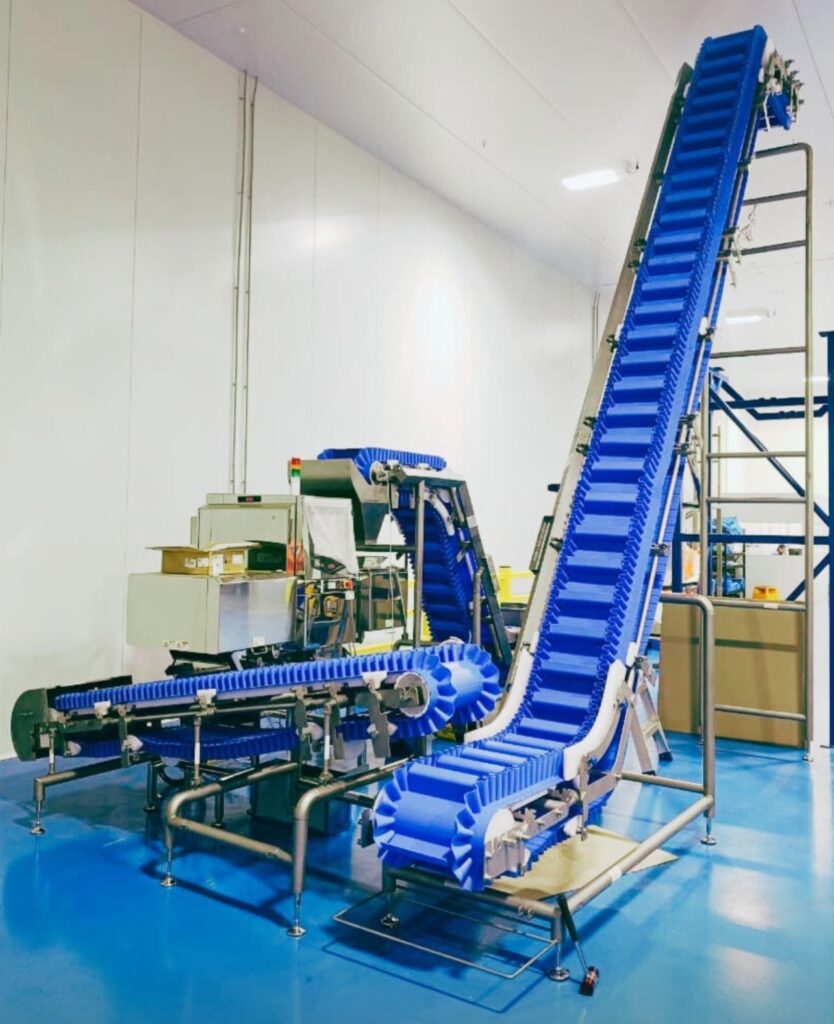
Conveyor technology continues to evolve, driven by advancements in automation, artificial intelligence, and sustainable practices. These innovations are transforming various industries, including manufacturing, logistics, and food and beverage, by enhancing efficiency, reducing costs, and improving overall productivity. Here are the latest trends in conveyor technology that are shaping the future of material handling.
1. Smart Conveyors with IoT Integration
a. Real-time Monitoring
Smart conveyors equipped with Internet of Things (IoT) sensors provide real-time monitoring of the system’s performance. These sensors collect data on speed, temperature, vibration, and other parameters, enabling predictive maintenance and reducing downtime.
b. Enhanced Connectivity
IoT integration allows conveyors to communicate with other machinery and systems in the production line. This connectivity facilitates seamless automation, better coordination, and improved overall efficiency.
2. Artificial Intelligence and Machine Learning
a. Predictive Maintenance
AI-driven predictive maintenance tools analyze data from conveyor systems to predict potential failures before they occur. This proactive approach minimizes unexpected breakdowns and extends the lifespan of the equipment.
b. Optimization Algorithms
Machine learning algorithms optimize conveyor operations by adjusting speeds, routing, and load balancing in real-time. These adjustments enhance throughput and reduce energy consumption.
3. Modular Conveyor Systems
a. Flexibility and Scalability
Modular conveyor systems are designed for flexibility and scalability. They can be easily reconfigured or expanded to accommodate changing production needs, making them ideal for industries experiencing rapid growth or seasonal fluctuations.
b. Cost-effective Upgrades
Modular designs allow for cost-effective upgrades and maintenance. Individual modules can be replaced or upgraded without overhauling the entire system, reducing downtime and costs.
4. Energy-efficient Conveyors
a. Eco-friendly Designs
Energy-efficient conveyors incorporate eco-friendly designs and materials. Features such as low-friction components, energy-saving motors, and regenerative drives reduce energy consumption and operational costs.
b. Variable Speed Drives
Variable speed drives (VSDs) enable conveyors to adjust their speed based on the load and production requirements. This flexibility minimizes energy waste and optimizes performance.
5. Hygienic and Sanitary Conveyors
a. Improved Cleanability
In industries like food and beverage, hygiene is critical. Modern conveyor systems are designed with easy-to-clean materials and smooth surfaces to prevent contamination and ensure compliance with strict sanitary standards.
b. Automated Cleaning Systems
Automated cleaning systems integrated into conveyors reduce the time and labor required for maintenance. These systems ensure consistent and thorough cleaning, enhancing product safety and quality.
6. Advanced Sorting and Routing Technologies
a. Automated Sorting
Advanced sorting technologies use sensors and AI to identify and sort products based on size, weight, and other characteristics. This automation improves accuracy and efficiency in packaging and distribution centers.
b. Dynamic Routing
Dynamic routing systems adjust the path of products in real-time based on current production needs and conditions. This adaptability reduces bottlenecks and maximizes throughput.
7. Conveyor System Simulation and Digital Twins
a. Simulation Software
Simulation software allows businesses to model and test conveyor systems in a virtual environment before implementation. This predictive modeling helps optimize design, reduce errors, and save costs.
b. Digital Twins
Digital twins are virtual replicas of physical conveyor systems. They provide real-time insights into system performance and enable remote monitoring and troubleshooting, improving operational efficiency.
Latest trends in conveyor technology
The latest trends in conveyor technology are revolutionizing material handling across various industries. By integrating IoT, AI, and machine learning, businesses can achieve higher efficiency, reduce downtime, and improve product quality. Modular designs, energy-efficient systems, and advanced sorting technologies offer flexibility and scalability, ensuring conveyor systems can adapt to evolving production needs. Embracing these innovations is essential for companies looking to stay competitive and achieve long-term success in an increasingly automated world.
